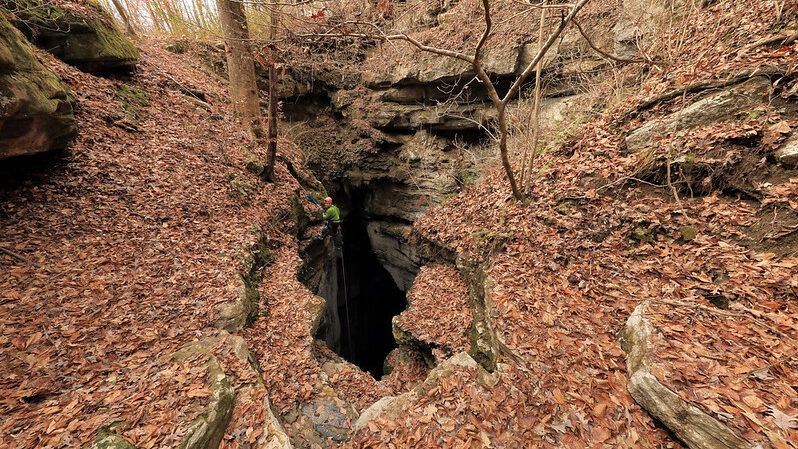Developing a Cave Conservation Management Toolbox by Exploring Cave Microclimates and Biodiversity Patterns

Project Information
Principal Investigator: Skylar Hopkins, North Carolina State University
Proposed Project Completion: July 2025
Implements Science Plan Theme: Adaptation
Co-Investigator: Matt Niemiller, University of Alabama in Huntsville
Overview
The southeastern United States has vast underground ecosystems where temperatures vary little throughout the year and humidity is always near 100%. These cave and karst ecosystems provide many services to people, such as recreational opportunities, revenue from tourism, and groundwater storage. Caves also provide habitats for important and endangered species, like bats that eat mosquitoes and crop pests.
Cave-dwelling species have evolved to live in relatively stable climates, so they may be especially sensitive to climate change. However, it is unclear how surface climate change will affect cave climates and the species that rely on them, because caves are remote environments that have long been difficult to study. This project will fill these important data gaps so that cave managers and scientists can better predict how management decisions will affect future cave ecosystems in a warming world with altered precipitation patterns.
The project will bring together scientists and managers from federal, state, and non-governmental organizations across nine southeastern states to perform underground surveys of cave climates and cave-dwelling species. Based on these surveys, they will identify any caves that contain rare species and any caves that are especially cool and wet. Forests could help keep caves cool and wet as global surface climates change, creating important refuges for species stressed by climate change. This project will also measure how much cave climates vary between caves under dense forests and caves under lands where forests have been removed. Using insights from new surveys and previously published studies, the team will create a toolbox of possible management actions for conserving cave ecosystems and cave-dwelling species threatened by climate change. The toolbox can be used by managers through the Southeast and the world when making decisions about how to conserve caves for future generations.
